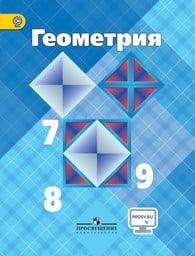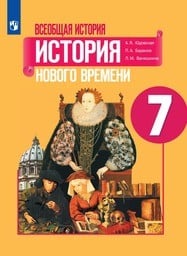Решебник по английскому языку язык 7 класс Баранова | Страница 35
Страница 35
- 3. Fill in: medieval, city, cobbled, ghost, ancient. Use the phrases to make sentences. (Заполните словами: средневековый, город, мощеный, призрак, древний. Используйте фразы для составления предложений.)
- 4. Choose the correct word. Check in your dictionaries. (Выберите правильное слово. Проверьте в своих словарях.)
- 5. Read the theory. Find examples in the text. (Прочитайте теорию. Найдите примеры в тексте.)
- 6. Put the verbs in brackets into Past Perfect or Past Perfect Continuous. (Поставьте глаголы в скобках в Past Perfect или Past Perfect Continuous.)
- 7. Put the verbs in brackets into Past Simple, Past Continuous, Past Perfect or Past Perfect Continuous. (Поставьте глаголы в скобках в Past Simple, Past Continuous, Past Perfect или Past Perfect Continuous.)
- 8. Complete the second sentence so that it means the same as the first. Use the word in bold. (Завершите второе предложение так, чтобы оно означало то же самое, что и первое. Используйте выделенное слово.)
3. Fill in: medieval, city, cobbled, ghost, ancient. Use the phrases to make sentences. (Заполните словами: средневековый, город, мощеный, призрак, древний. Используйте фразы для составления предложений.)
-
ancient ruins → Visitors can explore the ancient ruins of the Roman walls. (Посетители могут исследовать древние руины римских стен.)
Добавить текст Вернуть оригинал -
medieval cathedral → York Minster is a magnificent medieval cathedral. (Йоркский собор — великолепный средневековый собор.)
Добавить текст Вернуть оригинал -
city walls → We walked along the city walls to see the view. (Мы гуляли по городским стенам, чтобы посмотреть вид.)
Добавить текст Вернуть оригинал -
cobbled streets → The old town is famous for its cobbled streets. (Старый город известен своими мощеными улицами.)
Добавить текст Вернуть оригинал -
ghost story → The local guide told us a fascinating ghost story. (Местный гид рассказал нам увлекательную историю о призраках.)
Добавить текст Вернуть оригинал
4. Choose the correct word. Check in your dictionaries. (Выберите правильное слово. Проверьте в своих словарях.)
-
The historic/historical city of York is a popular tourist destination in England. (Исторический город Йорк — популярное туристическое направление в Англии.)
Добавить текст Вернуть оригинал The Romans 2,000 years ago founded York. (Римляне 2000 лет назад основали Йорк.)
-
You can discover York’s narrow streets during the daytime and take part in ghost walks/marches at night. (Вы можете исследовать узкие улицы Йорка днем и принять участие в прогулках/маршах с призраками ночью.)
Добавить текст Вернуть оригинал -
People believe that a lot of places there are ghostly/haunted. (Люди верят, что многие места там преследуются призраками/населены призраками.)
Добавить текст Вернуть оригинал -
Our place is the Treasurer’s House whose story is quite fascinating. (Наше место — Казначейский дом, чья история довольно увлекательна.)
Добавить текст Вернуть оригинал -
A plumber working there heard a noise then saw Roman soldiers coming through the walls. (Сантехник, работавший там, услышал шум, а затем увидел римских солдат, проходящих сквозь стены.)
Добавить текст Вернуть оригинал The soldiers were carrying/bringing shields and spears. (Солдаты несли щиты и копья.)
-
Harry noticed the soldiers had no legs he left the cellar terrified. (Гарри заметил, что у солдат нет ног, он оставил подвал в ужасе/испуганным.)
Добавить текст Вернуть оригинал
Grammar
Past Perfect/Past Perfect Continuous
5. Read the theory. Find examples in the text. (Прочитайте теорию. Найдите примеры в тексте.)
-
Past Perfect (Past Perfect):
-
AFFIRMATIVE: "...Harry Martindale, the plumber, went to work in the cellar of the Treasurer’s House since February 1953, because he hadn’t been there before." (Утвердительного примера нет. Отрицательный пример: "...Гарри Мартиндейл, водопроводчик, пошел работать в подвал Казначейского дома с февраля 1953 года, потому что он не был там раньше." → Correction: The text has an example of Past Perfect for an action completed before a past action: "What Harry hadn't noticed was that the soldiers were walking on the floor of the cellar, because he couldn't see their legs." (То, что Гарри не заметил, было то, что солдаты шли по полу подвала, потому что он не мог видеть их ног.))
Добавить текст Вернуть оригинал
-
-
Past Perfect Continuous (Past Perfect Continuous):
Добавить текст Вернуть оригинал-
AFFIRMATIVE: "...he had been working when he heard a strange noise..." (...он работал (до этого момента), когда услышал странный шум...)
Добавить текст Вернуть оригинал
-
6. Put the verbs in brackets into Past Perfect or Past Perfect Continuous. (Поставьте глаголы в скобках в Past Perfect или Past Perfect Continuous.)
-
They went to the museum after they had finished (finish) their homework. (Они пошли в музей после того, как закончили свою домашнюю работу.)
Добавить текст Вернуть оригинал They lost because they hadn't taken (not/take) a map with them. (Они заблудились, потому что не взяли с собой карту.)
-
She had already arranged (already/arrange) to go to Edinburgh so she didn't come with us to York. (Она уже договорилась поехать в Эдинбург, поэтому не поехала с нами в Йорк.)
Добавить текст Вернуть оригинал -
Terry had been working (work) in the cellar since morning and he felt very tired. (Терри работал в подвале с утра и очень устал.)
Добавить текст Вернуть оригинал He hadn't slept (not/sleep) for two days and felt exhausted. (Он не спал два дня и чувствовал себя изможденным.)
Her eyes were red. Had she been crying (she/cry)? (Ее глаза были красными. Она плакала?)
-
She had lived (live) in York for ten years before she decided to move to London. (Она прожила в Йорке десять лет, прежде чем решила переехать в Лондон.)
Добавить текст Вернуть оригинал
7. Put the verbs in brackets into Past Simple, Past Continuous, Past Perfect or Past Perfect Continuous. (Поставьте глаголы в скобках в Past Simple, Past Continuous, Past Perfect или Past Perfect Continuous.)
A scary night!
Last summer, Jim and his friend Bob 1) were spending (spend) the night in a haunted castle. They 2) travelled (travel) since morning so they 3) felt (feel) very tired when they finally 4) arrived (arrive) late in the evening. After they 5) had (have) a light dinner, they 6) went (go) straight to their room. They 7) lay (lie) on their beds for an hour, when suddenly they 8) heard (hear) loud footsteps in the corridor. They 9) were trying (try) to open their door, but it seemed it 10) had got stuck (get stuck)! Eventually, the door 11) opened (open) and a woman in a white dress 12) appeared (appear). She 13) was walking (walk) slowly and 14) was singing (sing) a sad song. They immediately 15) ran (run) out of the castle and never 16) went (go) back again.
Добавить текст Вернуть оригиналKey word transformations
8. Complete the second sentence so that it means the same as the first. Use the word in bold. (Завершите второе предложение так, чтобы оно означало то же самое, что и первое. Используйте выделенное слово.)
-
He had lunch, then he visited the library. (AFTER) → He visited the library after he had had lunch. (Он посетил библиотеку после того, как пообедал.)
Добавить текст Вернуть оригинал -
We visited the museum before we arrived. (TIME) → The museum was the first time we had visited before we arrived. (Музей был первым местом, которое мы посетили до нашего приезда.)
Добавить текст Вернуть оригинал -
They waited at the bus stop for an hour, then the bus came. (UNTIL) → The bus didn’t come until they had waited for an hour at the bus stop. (Автобус не приехал, пока они не прождали час на остановке.)
Добавить текст Вернуть оригинал -
She spent the whole morning in the garden and she was tired. (WORKING) → She was tired because she had been working in the garden since morning. (Она устала, потому что работала в саду с утра.)
Добавить текст Вернуть оригинал -
They didn't take a compass with them and they lost the way. (TAKEN) → They lost the way because they hadn't taken a compass with them. (Они заблудились, потому что не взяли с собой компас.)
Добавить текст Вернуть оригинал






